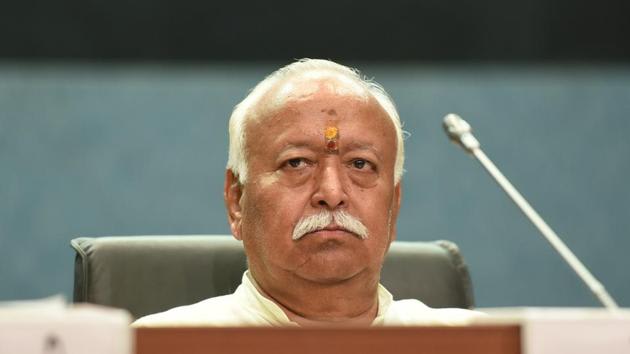
It wasn’t an off-the-cuff remark when Rashtriya Swayamsevak Sangh chief Mohan Bhagwat suggested a debate on reservation, a constitution-backed guarantee to give India’s socially marginalized sections access to educational institutions, jobs and, even, legislatures. The RSS has often argued that present system of quotas cannot be permanent, has been poorly implemented, had been used as a political tool, created ill-will within Hindu society and needed a course correction by the society itself.
In a resolution adopted in its Pratinidhi Sabha meeting in 1981, the RSS suggested continuing with the quota system “for the present” to bring “all these brethren of ours” (SCs and STs) who have remained backward in educational, social and economic fields over the centuries at par with the rest of society.
“Reservation has, because of its wrong implementation, become a tool of power politics and election-tactics instead of serving the purpose for which it was framed. And this has resulted in generating mutual ill will and conflict in our society in several parts of the country,” it said.
“The ABPS agrees with the Prime Minister’s viewpoint that the reservation cannot be a permanent arrangement, that these crutches will have to be done away with as soon as possible, and that because of this arrangement merit and efficiency should not be allowed to be adversely affected.”
This is not the first time that some RSS functionary, or even Bhagwat, has set up a political firestorm by suggesting that the present system of caste-based reservations merits a re-look.
Many in the BJP blamed Bhagwat’s suggestion, at the peak of 2015 Bihar election campaign, to review reservation system for the party’s defeat at the hands of Nitish Kumar and Lalu Prasad – two strong OBC leaders.
What then prompted Bhagwat to stir up the controversy again?
A possible reason lies in the ‘now or never’ feeling within the RSS and its affiliates about some of the issues close to its heart.
The BJP’s return to Raisina Hills with a great majority has seen the ruling party delivering on its long standing promise of stripping Jammu and Kashmir of its special status, the promise that has formed part of every manifesto of the BJP and the Bharatiya Jan Sangh.
The BJP has also managed to criminalise triple talaq despite strong opposition from its rivals and the absence of a clear majority in the Rajya Sabha. This is a step in the direction of having a uniform civil code, which is another ideological promise of the BJP.
That BJP could deliver this in the first session of Parliament of winning national election with a majority for the second time has prompted some within the parivar to aim for more.
Talk of a population law, another issue that the RSS has championed, has already started with PM Modi talking about uncontrolled population growth in his Independence Day function.
RSS chief Mohan Bhagwat’s suggestion to debate reservations may just be driven by the desire to ‘explore’ if there was a scope to extract what it wants on reservation system when the opposition is already down, literally, and many caste-based political parties are struggling to survive.
In his first stint in power, PM Modi has already delivered income-based quota by creating an additional 10% reservation for poorest of poor among Indians, irrespective of caste and religion. Many in the RSS believe more needs to be done on this front.
Bhagwat’s suggestion is bound to create some storm when elections in three key states are round the corner. The BJP, which burnt its finger in quota fire in Bihar, will do its bit to distance itself from this issue. It knows there is a great risk in identifying with the cause.
PM Modi’s rise to power in 2014 and in 2019 again has been on the back of a support beyond the BJP’s ‘Brahmin-Baniya’ support base. It will not put its winning formula to risk by supporting the cause of its ideological mentor, no matter how much it agrees with it.